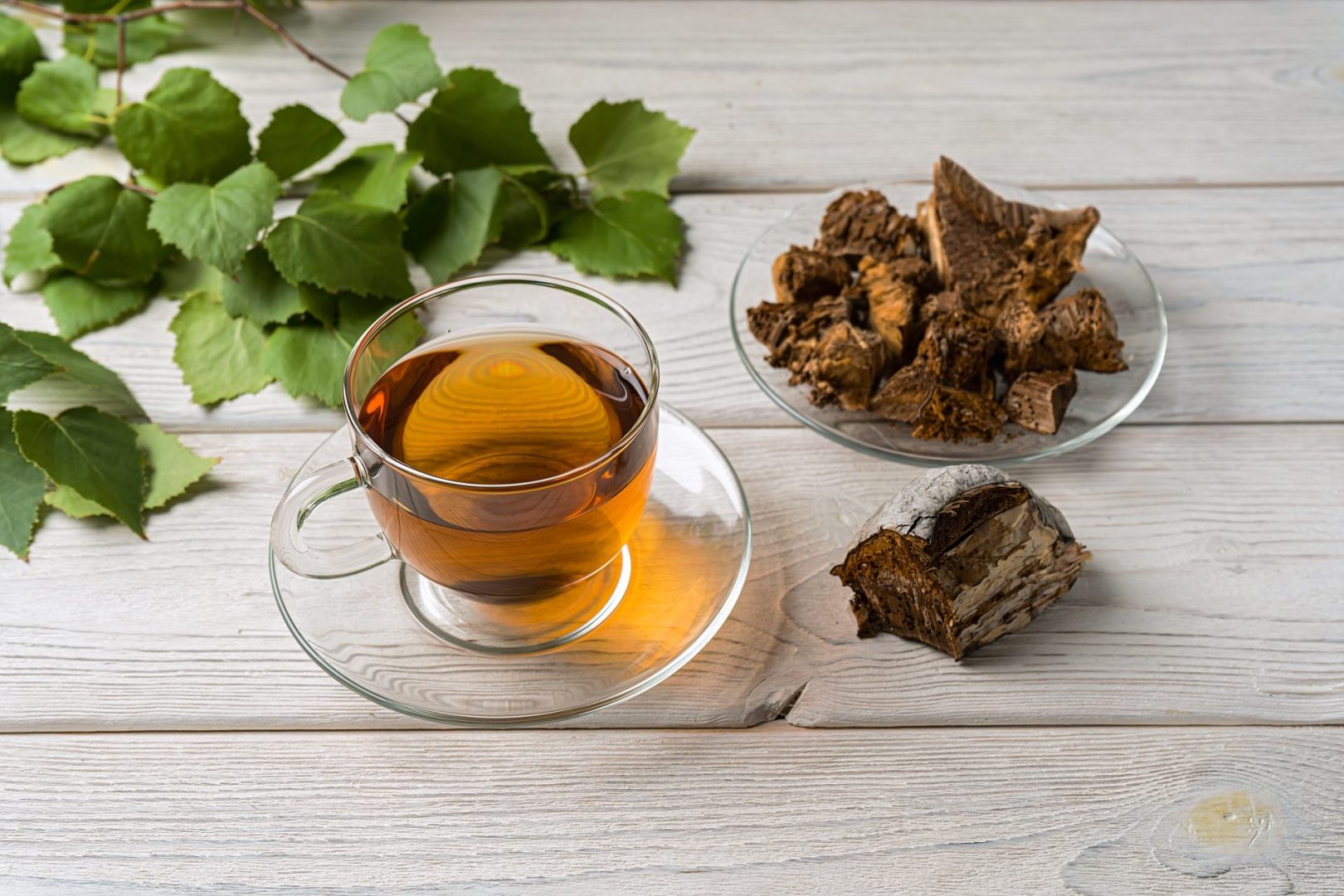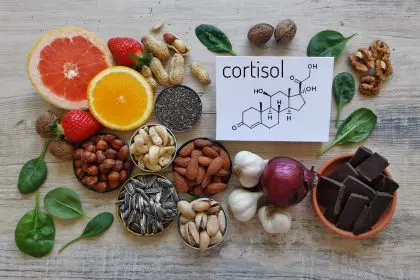Modern life has transformed stress from an occasional survival mechanism into a constant companion that follows us through traffic jams, work deadlines, family obligations, and financial pressures. Our bodies remain locked in perpetual fight-or-flight mode, flooding our systems with stress hormones that were never designed for continuous activation.
Enter adaptogen tea, a category of herbal beverages that has captured the attention of wellness enthusiasts and stressed-out professionals alike. These remarkable plant-based compounds promise something that seems almost too good to be true: the ability to fundamentally alter how our bodies perceive and respond to stress.
The concept challenges everything we thought we knew about stress management. Instead of simply masking symptoms or temporarily calming nerves, adaptogens work at a cellular level to help the body adapt to stressors more efficiently. This revolutionary approach suggests that we might be able to train our stress response systems to become more resilient and balanced.
Understanding the body’s stress response system
The human stress response system evolved over millions of years to help our ancestors survive immediate physical threats. When faced with danger, the body rapidly releases stress hormones like cortisol and adrenaline, preparing muscles for action, heightening alertness, and shutting down non-essential functions like digestion and immune response.
This system works brilliantly for short-term emergencies but becomes destructive when activated constantly. Modern stressors rarely require physical action, yet our bodies respond as if every deadline, argument, or financial worry represents a life-threatening emergency. This chronic activation leads to a cascade of health problems including anxiety, depression, digestive issues, weakened immunity, and cardiovascular disease.
The hypothalamic-pituitary-adrenal axis serves as the body’s primary stress response system, orchestrating the release of stress hormones and coordinating the body’s reaction to perceived threats. When this system becomes dysregulated through chronic stress, it can remain stuck in overdrive, making it difficult to return to a calm, balanced state.
Traditional stress management techniques focus on managing symptoms after they occur, but adaptogens work differently. These compounds appear to modulate the stress response system itself, potentially helping it become more efficient and less reactive to daily pressures.
What makes adaptogens unique in the plant kingdom
Adaptogens represent a special category of plants that have evolved remarkable survival mechanisms to thrive in harsh environments. These botanical survivors have developed sophisticated chemical compounds that help them withstand extreme temperatures, drought, poor soil conditions, and other environmental stressors.
The theory suggests that when humans consume these adaptogenic compounds, we may be able to borrow some of their resilience. These plants have essentially figured out how to maintain balance and function optimally despite challenging conditions, and their chemical constituents might help our bodies develop similar capabilities.
What sets adaptogens apart from other herbal remedies is their unique ability to provide bidirectional support. Rather than simply stimulating or sedating the body, they appear to normalize function by providing exactly what the system needs in any given moment. If stress levels are too high, they may help calm the response. If energy is depleted, they may help restore vitality.
This intelligent adaptability makes adaptogens particularly intriguing for stress management. Unlike pharmaceutical interventions that typically work in one direction, these plant compounds seem to have an innate wisdom that helps them support the body’s natural tendency toward balance and homeostasis.
The science behind adaptogenic compounds
The active compounds in adaptogenic plants work through multiple pathways in the body, creating a complex network of beneficial effects that support stress resilience. Many of these compounds are classified as secondary metabolites, which are chemical substances that plants produce to help them survive environmental challenges.
Saponins, glycosides, phenolic compounds, and alkaloids are among the key chemical families found in adaptogenic plants. These compounds appear to influence neurotransmitter activity, hormone production, cellular energy metabolism, and immune function in ways that promote greater stress resilience.
The mechanisms of action are still being studied, but current research suggests that adaptogens may work by supporting mitochondrial function, the cellular powerhouses that produce energy. When cells can produce energy more efficiently, the entire body becomes more resilient to stress and better able to maintain optimal function under pressure.
These compounds also appear to influence the hypothalamic-pituitary-adrenal axis, potentially helping to regulate the release of stress hormones and prevent the system from becoming stuck in chronic activation. This regulatory effect could help explain why people report feeling more balanced and less reactive to daily stressors after consuming adaptogenic herbs regularly.
Ashwagandha’s powerful stress-modulating effects
Ashwagandha stands out as one of the most thoroughly researched adaptogenic herbs for stress management. This ancient Indian plant has been used for thousands of years to promote vitality and resilience, and modern research has begun to validate many of its traditional uses.
The herb contains compounds called withanolides, which appear to have significant effects on the body’s stress response system. These active constituents may help regulate cortisol levels, reducing the harmful effects of chronic stress while supporting the body’s natural ability to cope with pressure.
People who consume ashwagandha tea regularly often report feeling more emotionally balanced and less overwhelmed by daily challenges. The herb seems to create a buffer against stress, allowing individuals to maintain clarity and composure even in difficult situations.
The adaptogenic effects of ashwagandha extend beyond stress management to include improvements in sleep quality, energy levels, and cognitive function. This comprehensive support suggests that the herb may be helping to restore overall balance to systems that have been disrupted by chronic stress.
Rhodiola’s Arctic resilience for modern stress
Rhodiola rosea, sometimes called Arctic root or golden root, has evolved to survive in some of the harshest environments on Earth. This hardy plant thrives in the rocky, cold regions of Siberia, Scandinavia, and other northern climates where most vegetation cannot survive.
The compounds found in rhodiola, including rosavins and salidroside, appear to enhance the body’s ability to adapt to both physical and mental stress. These active constituents may help improve mental clarity, reduce fatigue, and enhance overall resilience to challenging situations.
Rhodiola tea has gained popularity among professionals dealing with high-pressure work environments and demanding schedules. The herb seems to provide sustained energy without the jittery effects associated with caffeine, while simultaneously supporting the body’s ability to recover from stress.
The adaptogenic properties of rhodiola may help optimize the balance between stress activation and recovery, allowing the body to respond appropriately to challenges while maintaining the ability to return to a calm state when the stressor passes.
Holy basil’s sacred stress protection
Holy basil, also known as tulsi, holds sacred status in traditional Indian medicine and has been revered for its ability to promote peace and balance. This aromatic herb contains compounds that may help protect the body from the damaging effects of chronic stress while supporting overall well-being.
The plant contains a unique combination of compounds including eugenol, rosmarinic acid, and other phenolic compounds that appear to have stress-protective properties. These constituents may help modulate the inflammatory response that often accompanies chronic stress, potentially reducing the risk of stress-related health problems.
Holy basil tea is often consumed as a daily ritual to promote calm and centered energy throughout the day. Regular consumers report feeling more grounded and less reactive to stressful situations, suggesting that the herb may be helping to rewire their stress response patterns.
The herb’s adaptogenic effects appear to extend to emotional well-being as well, with many people reporting improved mood and greater emotional resilience after incorporating holy basil into their daily routine.
Schisandra’s five-flavor complexity
Schisandra chinensis, known as the five-flavor fruit, contains a complex array of compounds that may provide comprehensive adaptogenic support. This unique berry has been used in traditional Chinese medicine for centuries to promote vitality and longevity.
The active compounds in schisandra, called schisandrins, appear to support liver function, which plays a crucial role in processing stress hormones and maintaining overall balance in the body. By supporting the liver’s ability to metabolize stress-related compounds, schisandra may help prevent the accumulation of harmful substances that contribute to chronic stress symptoms.
Schisandra tea is often consumed to promote mental clarity and focus while reducing the mental fatigue that often accompanies chronic stress. The herb seems to provide sustained cognitive support without causing overstimulation or interference with sleep patterns.
The adaptogenic properties of schisandra may help optimize the body’s energy production and utilization, supporting both physical and mental performance under stress while promoting recovery and restoration.
The ritual and mindfulness aspect
The act of preparing and consuming adaptogen tea may provide stress-relief benefits beyond the herbs themselves. The ritual of brewing tea creates a natural pause in busy schedules, offering moments of mindfulness and intention that can help interrupt stress patterns.
The warm, soothing nature of tea consumption activates the parasympathetic nervous system, which is responsible for rest and recovery. This physiological shift toward calm may enhance the adaptogenic effects of the herbs while providing immediate stress relief.
Many people find that incorporating adaptogen tea into their daily routine helps establish healthy boundaries between work and rest, creating natural transition points that support better stress management throughout the day.
Potential mechanisms of stress response rewiring
The concept of rewiring stress response suggests that adaptogens may help create new neural pathways and cellular responses that support greater resilience. This process, known as neuroplasticity, allows the brain and nervous system to adapt and change based on repeated experiences and inputs.
Regular consumption of adaptogenic compounds may help strengthen the body’s natural ability to return to balance after stress, essentially training the system to become more efficient at managing challenges. This could lead to lasting changes in how the body perceives and responds to stressors.
The cumulative effects of adaptogen consumption may help reset the stress response system’s baseline, making it less likely to overreact to minor stressors while maintaining appropriate responses to genuine threats.
Considerations for optimal effectiveness
The effectiveness of adaptogen tea for stress management appears to depend on several factors including consistency of use, individual biochemistry, stress levels, and overall lifestyle factors. Most research suggests that adaptogens work best when consumed regularly over extended periods rather than as occasional remedies.
The quality and preparation of adaptogenic herbs can significantly impact their effectiveness. Proper extraction methods, appropriate dosing, and sourcing from reputable suppliers all play important roles in maximizing the potential benefits of these compounds.
Individual responses to different adaptogens can vary significantly, suggesting that finding the right combination or specific herb may require some experimentation. What works powerfully for one person may have minimal effects for another, highlighting the importance of personalized approaches to adaptogen use.
Integration with comprehensive stress management
While adaptogen tea shows promise for supporting stress resilience, it appears to work best as part of a comprehensive approach to stress management that includes adequate sleep, regular exercise, healthy nutrition, and effective coping strategies.
The potential for adaptogens to rewire stress response represents an exciting frontier in natural health, offering hope for those seeking alternatives to pharmaceutical interventions for stress-related issues. However, the complex nature of stress and individual variation in response suggests that these powerful plants are best viewed as valuable tools rather than complete solutions.
The growing body of research on adaptogenic herbs continues to reveal new insights into their mechanisms of action and potential applications for supporting human health and resilience in our increasingly stressful modern world.














